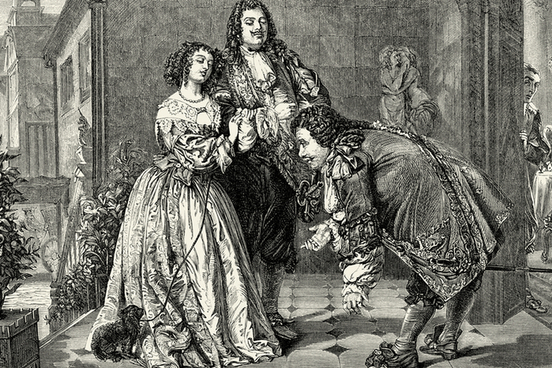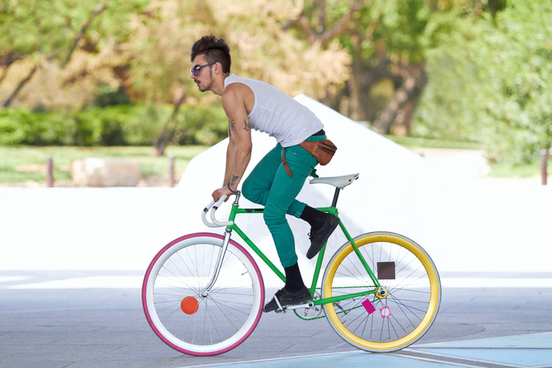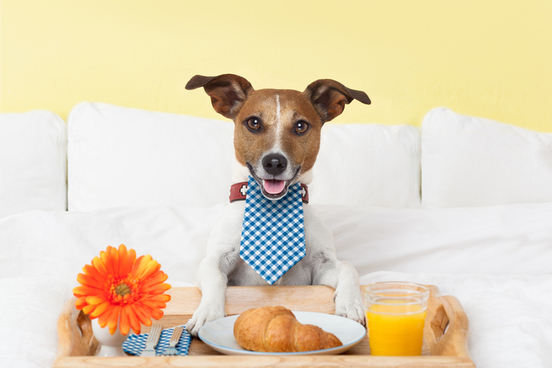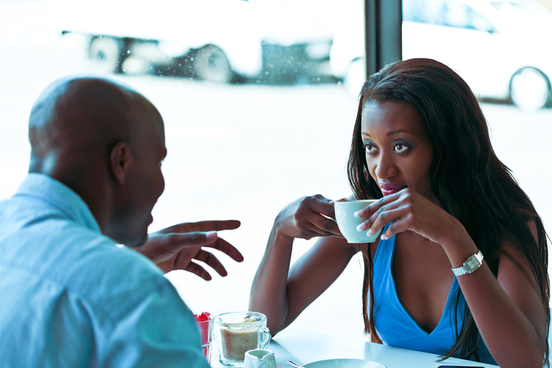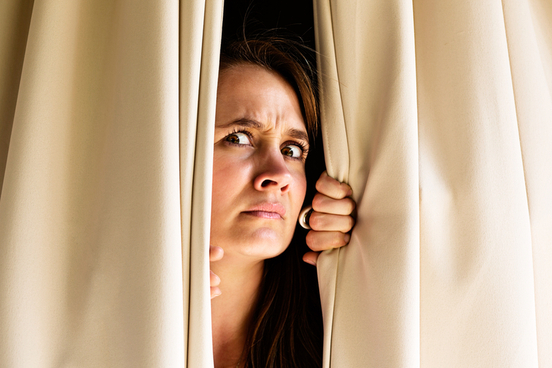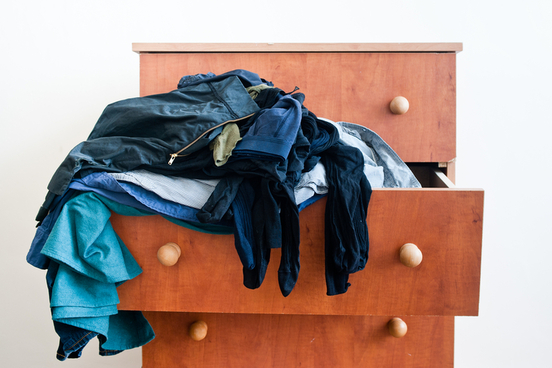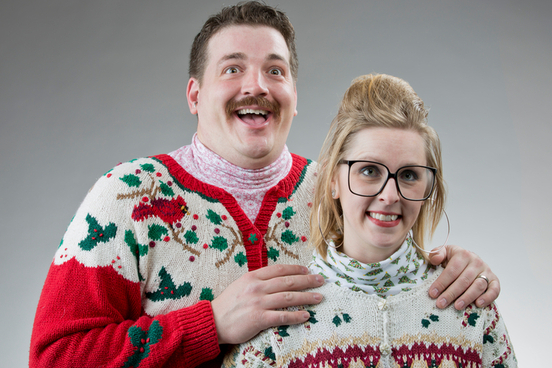It’s never nice to be rude. You will earn disrespect, gain negativity, and lose friends. Whether it’s intentional or just a spur of the moment, be a good judge of character with the following expressions for rudeness.
Slang Words for Rude (in Alphabetical Order)
A Fine How Do You Do
Meaning:
-
(Expression) A polite way of calling someone out for their rudeness.
-
Example:
Person 1: Hello Mrs. Bennett, I heard your daughter ranked last place in her class.
Person 2: Well that’s a fine how do you do. Kids can learn at their own pace.
Below the Belt
Meaning:
-
(Expression) Based on the rules of physical sports such as boxing not to hit below the waistline, “below the belt” is an unfair and person-attacking comment.
-
Example: The bullies went below the belt when they made fun of Andrew’s tragic family history.
Cheeky Chappy
Meaning:
-
(Noun) A British slang for someone who is too forward with their opinions but gets away with it because s/he is charming.
-
Example: The TV host is such a cheeky chappy. He pokes fun at guests yet ends up making the audiences laugh.
Cock a Snook
Meaning:
-
(Verb) The British way of taunting someone by placing the thumb of an open hand right at one’s nose. This is usually done by kindergarten and elementary school kids.
-
Example: Remember not to cock a snook whenever your uncle does a quirky thing. Your uncle is still your uncle even if he’s sick.
Diss
Meaning:
-
(Verb) To purposefully make a rude statement.
-
Example: Jay made a rap diss about how entertainment agencies shackle artistic freedom.
Eat and Run
Meaning:
- (Verb) To go off immediately after eating without having the customary thank you or short conversation among family and friends. In eating establishments, this means not to pay for the meal.
- Example: Johnny and Mark ate and ran out of the sushi house because they forgot their wallets.
Feral
Meaning:
-
(Adjective) A wild animal trait used by Australians to refer to someone who has completely lost their temper.
-
Example: Hank doesn’t care how you feel once he’s drunk and feral. He’ll just say whatever he wants.
Gorby
Meaning:
-
(Adjective) A Canadian slang for rude, noisy, and disrespectful tourists.
-
Example: Those gorby tourists just spat at the street.
Karen
Meaning:
-
(Noun) Based on a viral meme, a “Karen” is a middle-aged, Caucasian lady who is disrespectful towards supermarket staff or middle-waged employees in general.
-
Example: The last restaurant guest pulled off a total Karen when she won’t drink her white wine because “it’s not clear enough”.
Nosy Parker
Meaning:
-
(Noun) A person who asks similar, annoying, and uncomfortable questions one after the other.
-
Example: Mr. Holmes avoids his neighbor because she’s a nosy parker.
Out of Line
Meaning:
-
(Expression) Since each one has their own boundaries with each other, to be out of line is to cross these boundaries.
-
Example: Vicki was out of line for commenting on how much Chloe earned on being a waitress.
Party Pooper
Meaning:
-
(Noun) Someone who does not participate in party games and activities despite being invited.
-
Example: You won’t be invited to parties anymore if you don’t join in the games. Don’t be a party pooper.
Rude Awakening
Meaning:
-
(Idiom) Being struck by the realization that someone or something is not what it appears to be.
-
Example: Dana is in for a rude awakening when she’ll know her husband’s affair.
Smart Alecky
Meaning:
-
(Adjective) Someone who thinks they are so smart that they stamp a negative expression among others.
-
Example: The smart alecky sports commentator mispronounced the player’s last name. The player thought he was unprofessional and rude.
Uncultured Swine
Meaning:
-
(Noun) A degrading term for someone who has not learned to navigate social conventions.
-
Example: That uncultured swine did not even greet the birthday celebrant yet he ate most of the cake.
- abusive
- blunt
- boorish
- coarse
- crude
- ignorant
- impolite
- insulting
- intrusive
- obscene
- surly
- vulgar
- uncivil
- abrupt
- bad-mannered
- barbarian
- barbaric
- barbarous
- brusque
- brutish
- cheeky
- churlish
- crabbed
- curt
- discourteous
- graceless
- gross
- gruff
- illiterate
- impertinent
- impudent
- inconsiderate
- insolent
- loutish
- low
- offhand
- peremptory
- raw
- savage
- scurrilous
- short
- uncivilized
- uncouth
- uncultured
- uneducated
- ungracious
- unmannerly
- unpolished
- unrefined
- wild
- coarse
- ignorant
- angular
- artless
- barbarous
- callow
- formless
- fresh
- green
- inartistic
- inelegant
- inexperienced
- inexpert
- makeshift
- primal
- raw
- rough
- roughhewn
- roughly made
- rudimental
- rudimentary
- shapeless
- simple
- uncivilized
- unconversant
- uncultivated
- unfashioned
- unfinished
- unformed
- unhewn
- unpolished
- unprocessed
- unrefined
- wild
- harsh
- unpleasant
- violent
- abrupt
- guessed
- imperfect
- imprecise
- inexact
- in the ballpark
- proximate
- rough
- sharp
- startling
- stormy
- surmised
- turbulent
- unprecise
On this page you’ll find 279 synonyms, antonyms, and words related to rude, such as: abusive, blunt, boorish, coarse, crude, and ignorant.
FREQUENTLY ASKED QUESTIONS
What is another word for rude?
Many synonyms of rude suggest a violation of manners or propriety, including
impolite, bad-mannered, ill-mannered, mannerless, unmannerly, and discourteous.
A word that suggests that a person doesn’t know how to interact with others—or doesn’t care how they do—is tactless.
Words that suggest a more active, deliberate rudeness are disrespectful, insolent, and impertinent.
People who are overly blunt or aggressive might be described as brash, brusque, crude, or boorish.
The word uncivil implies that someone is behaving in a way that ignores common courtesy.
A generally rude person might be called a jerk (or worse names).
Rude can also describe something that is crudely made. The word crude can also be used as a synonym of this sense.
What is a more polite word for rude?
How is rude different from mean?
What is another word for a rude awakening?
- exact
- gradual
- kind
- mannerly
- nice
- polished
- polite
- refined
- respectful
- smooth
- sophisticated
- gentle
- mild
- peaceful
- pleasing
- exact
- gradual
- kind
- mannerly
- nice
- polished
- polite
- refined
- respectful
- smooth
- sophisticated
Roget’s 21st Century Thesaurus, Third Edition Copyright © 2013 by the Philip Lief Group.
TRY USING rude
See how your sentence looks with different synonyms.
How to use rude in a sentence
There appears a rude attempt to picture the mouth cavity and to show those interesting accessories, the teeth.
CHILDREN’S WAYSJAMES SULLY
On the upper part of each of these posts was a rude carving of a hideous human face with prominent teeth.
OUR LITTLE KOREAN COUSINH. LEE M. PIKE
SYNONYM OF THE DAY
OCTOBER 26, 1985
WORDS RELATED TO RUDE
- barbarian
- barbaric
- base
- bawdy
- blue
- boorish
- brutish
- cheap
- churlish
- common
- crass
- crude
- dirty
- earthy
- filthy
- foul
- foul-mouthed
- gross
- gruff
- ill-bred
- immodest
- impolite
- improper
- impure
- incult
- indelicate
- inelegant
- loutish
- low
- lowbred
- mean
- nasty
- obscene
- off-color
- offensive
- raffish
- raunchy
- raw
- ribald
- rough
- roughneck
- rude
- scatological
- smutty
- tacky
- tasteless
- uncivil
- uncivilized
- uncouth
- uncultivated
- uncultured
- unpolished
- unrefined
- vulgar
- vulgarian
- calumniating
- castigating
- censorious
- contumelious
- defamatory
- derisive
- disparaging
- insolent
- insulting
- invective
- libelous
- maligning
- obloquious
- offensive
- opprobrious
- reproachful
- reviling
- rude
- sarcastic
- scathing
- scolding
- scurrilous
- sharp-tongued
- slanderous
- traducing
- upbraiding
- vilifying
- vituperative
- bold
- conceited
- disdainful
- domineering
- egotistic
- forward
- haughty
- imperious
- overbearing
- pushy
- rude
- assuming
- bantam
- bold
- brassy
- brazen
- cheeky
- defiant
- disrespectful
- forward
- impertinent
- impudent
- insolent
- nervy
- rude
- saucy
- shameless
- smart-ass
- all thumbs
- amateurish
- artless
- blundering
- bulky
- bumbling
- bungling
- butterfingers
- coarse
- floundering
- gawky
- graceless
- green
- having two left feet
- having two left hands
- incompetent
- inept
- inexpert
- klutzy
- lumbering
- maladroit
- oafish
- rude
- stiff
- stumbling
- uncoordinated
- uncouth
- unfit
- ungainly
- ungraceful
- unhandy
- unpolished
- unrefined
- unskilled
- unskillful
- barbaric
- barbarous
- boorish
- brutal
- coarse
- cruel
- inhuman
- lowbrow
- merciless
- philistine
- primitive
- rough
- rude
- uncivil
- uncivilized
- uncouth
- uncultivated
- uncultured
- unsophisticated
- untamed
- vicious
- vulgar
- wild
Roget’s 21st Century Thesaurus, Third Edition Copyright © 2013 by the Philip Lief Group.
What is a word for a rude person?
1 uncivil, unmannerly, curt, brusque, impertinent, impudent, saucy, pert, fresh. 2 unrefined, uncultured, uncivilized, uncouth, coarse, vulgar, rough.
What are some words for rude?
discourteous,
Is kinda a bad word?
Examples of Informal Contractions Contractions like “won’t” and “couldn’t” are undisputedly real words. “Kinda,” “wanna,” “whatcha,” “hafta,” “gimme,” “lemme,” and “gonna” are just a few examples of this type of contraction. All are marked as incorrect.
How do you stop a rude person?
5 Ways to Shut down Rude People Who Don’t Know When to Stop
- Ignore, instead of dignifying it with an answer. If you don’t want to respond to the comment made by a rude person, you can just laugh it off.
- Speak their language and shut them down.
- Confuse them with sarcasm.
- Kill them with kindness.
- Call out their behavior.
How do you insult someone in one word?
Insulting words for someone who is stupid or silly – thesaurus
- stupid. noun. offensive an insulting name for someone who you think is being stupid.
- jerk. noun. offensive someone who does stupid, annoying, or unkind things.
- dunce. noun.
- dipstick. noun.
- dork. noun.
- bonehead. noun.
- dingbat. noun.
- jackass. noun.
Is kinda a slang word?
“Kind of” is the most common definition for KINDA on Snapchat, WhatsApp, Facebook, Twitter, Instagram, and TikTok….Summary of Key Points.
| KINDA | |
|---|---|
| Definition: | Kind of |
| Type: | Word and Abbreviation |
| Guessability: | 1: Easy to guess |
| Typical Users: | Adults and Teenagers |
How do you shut up a rude person?
Which is the best definition of the word rude?
discourteous or impolite, especially in a deliberate way: a rude reply. without culture, learning, or refinement: rude, illiterate peasants. rough in manners or behavior; unmannerly; uncouth. rough, harsh, or ungentle: rude hands. roughly wrought, built, or formed; of a crude construction or kind: a rude cottage.
Is it rude to say something rude in an email?
I hate to be rude, but no it isn’t. It depends on who is sending it to whom and what relationship they have. 10. Fine. This list tells you to avoid this word because of its difficulty to decipher. It either means “that’s good” or “if that’s what you want, but it’s dumb.” I am confused to the point of swearing.
How many rude words are there in the Dictionary?
There are 406 rude-related words in total, with the top 5 most semantically related being impolite, crude, raw, uncouth and vulgar. You can get the definition (s) of a word in the list below by tapping the question-mark icon next to it.
What’s the rudest word you can say in Japanese?
If you’ve read any manga or watched an anime i’m pretty sure you will have already come across this rude word. Uzai is a really fun word to say, it just seems to roll off the tongue. This rude word equates to “annoying” and can also be used to tell someone that something is too loud.
What is the root word for Rude?
Somewhat surprisingly, “rude” is completely unrelated to “crude,” which is rooted in the Latin “crudus,” meaning “rough or cruel.” But the Latin root of “rude” did spin off two other useful words, “rudiment” (the “raw or most basic state” of something) and “erudite” (literally “brought out of ignorance”).
What do you mean by Rude?
Synonyms & Antonyms of rude. 1 hastily or roughly constructed. a rude shelter built from unfinished logs by some forgotten pioneer. Synonyms for rude. artless, clumsy, crude, jerry-built, jerry-rigged,
Is rude a noun?
2. adjective [usually ADJECTIVE noun] Rude is used to describe words and behaviour that are likely to embarrass or offend people, because they relate to sex or to body functions.
What is the meaning of rude?
The definition of rude is behavior that does not conform to what society says would be polite or good manners or inappropriate subjects of discussion. An example of rude is bumping into someone and not saying “Excuse me.”. An example of rude is when you engage in an inappropriate discussion about sex.
discourteous,
What does the word rude mean?
Rude refers to bad behavior or just plain bad manners. For example, children are taught to say “please” and “thank you” or they are considered rude. A rude person needs a little work — rude also means crude or basic, like a rude cabin out in the woods that barely keeps the rain out.
How can I be rude?
10 Ways to Be Rude To People
- Firstly, raise your voice a lot and be very demanding.
- Never go along with anyone and always rebel in a decision.
- Take everything personally.
- Name calling is great.
- Yell at them if everything is not perfect, and if it is, then yell about the fact that it’s too perfect.
What is a polite way to say rude?
Top Five Ways to Say Something Rude… Politely
- Turn it into a compliment!
- Diss yourself in the process!
- Disguise it in a rant! Ex.: You dress like a harlot.
- Make it seem like a good thing… Sort of.
- Make them feel guilty, but do it nicely! Ex.: I hate it when you text other people when you talk to me.
How do you put someone in a rude place?
Here are some ways you can try to deal with them:
- Show empathy and sympathy. This requires understanding why the person is being rude.
- Call the person out on his behavior.
- Don’t give airtime to the rude person.
- Avoid the rude person.
- Offer extra kindness.
What causes rudeness?
Those with conditions such as Antisocial Personality Disorder and Narcissistic Personality Disorder often appear rude or inconsiderate due to a lack of empathy and a tendency to disregard others’ feelings.
Is being direct rude?
It is a non-negotiable characteristic of respectful communication. I say respectful communication is usually direct, because sometimes to avoid being harsh, it is best to be more circumspect, or to be silent. Sometimes, what needs to be told to be truthful, is not OUR truth to tell.
asked Mar 25, 2016 at 11:30
2
The Most Rude, ill-Mannered, and Humiliating Plays in NBA History!
If we use rudest here, we would have to still use «most» for the other adjectives:
The Rudest, Most ill-Mannered, and Most Humiliating Plays in NBA History!
The title uses «most» to apply to all three adjectives, because «ill-Manneredest» is a word I’ve never seen nor would wish to see in a title, unless written in jest, and there’s no «humiliatingest».
Hence, the most logical, or logicalest, way is just to attach «most» at the start of the title.
answered Mar 25, 2016 at 11:32
CowperKettleCowperKettle
36.3k16 gold badges127 silver badges224 bronze badges
4
You know, I often wonder, as I stare at our recycling bin:
Is cold liquid acceptable?
This ambiguity could easily have been resolved by printing NO LIQUID OR HOT ASHES.
In the example from the question, it could be reworded as:
«The Most ill-Mannered, Humiliating and Rudest Plays in NBA History!»
answered Mar 26, 2016 at 6:35
Nick GammonNick Gammon
1,0606 silver badges17 bronze badges
2
Ya I too think it totally depends on the context and how natural you want to sound.
rude
ruder or more rude
rudest or most rude
In some context rudest may be good and sound natural while in other most rude may be more natural. It’s up to you what you want to use.
answered Mar 25, 2016 at 16:36
To answer your question, yes you can use RUDE (it’s a link) in both forms, i.e. rudest and most rude. There are some adjectives that can be used in both forms such as rude, clever, friendly, sure, crazy, likely, simple, common.
Apart from what you can find in dictionaries sometimes it gets tricky when people simply use a form that they think is easier or more beautiful to articulate.
As CowperKettle well pointed out, most has been elided afterwards to avoid repetition. There is no problem with using most rude in the first place.
answered Mar 25, 2016 at 15:40
YuriYuri
7,4437 gold badges63 silver badges110 bronze badges
You must log in to answer this question.
Not the answer you’re looking for? Browse other questions tagged
.
Not the answer you’re looking for? Browse other questions tagged
.
When you receive attention or a favor, acknowledge it by “I thank you,” instead of “Thanks.” We notice that “Thanks” has become a vulgarism from the abuse of the word.
—Mrs. Walter R. Houghton et al., Rules of Etiquette & Home Culture: Or, What to Do & How to Do it, 1893
Some people today still feel that thanks veers overly close to the informal, although the recommended alternative appears to be “thank you” rather than “I thank you.” Our definition for one sense of this word is “often used in an utterance containing no verb and serving as a courteous and somewhat informal expression of gratitude.”
The word has been used in this sense for over four hundred years; see, for example, a line uttered by Helena in Shakespeare’s All’s Well That Ends Well: “Thanks, sir; all the rest is mute.”
DON’T speak of this or that kind of food being healthy or unhealthy; say always wholesome or unwholesome.
—Oliver Bell Bunce, DON’T; or, Directions for Avoiding Improprieties in Conduct and Common Errors of Speech (The Boudoir Edition), 1889
It should be noted that there are earlier editions of this particular book, but none of them appear to be described as “The Boudoir Edition.” We must admit that boudoir edition is a term outside of our lexicographic ken, but it sounds very nice, so that’s why we’ve quoted from this edition.
Bunce was a man of opinions on language; these opinions were rendered forcefully, and, on some occasions, without excessive regard for clarity.
“Moderate your transports.”
“Remember to give the dipthongal sound of eu where it belongs. The perversity of pronunciation in this particular is singular.”
“If a person can not give his church or town library a little money without calling it donating, let him, in the name of good English, keep his gift until he has learned better.”
The reason to not use healthy in relation to food is that healthy was thought by some at the time to be distinct from healthful: the former meant “possessing good health” and the latter meant “conducive to good health.” This distinction is little observed in the present day.
As for such words as “gent” and “pants,” you probably know that there are two good reasons for letting them forever alone. The first is, that there are really no such words; but they have been cut off of the longer ones—gentleman and pantaloons. The second is, that these words are used by vulgar people almost entirely. Now, to be vulgar in manners is like being unclean in the face, and having one’s clothes torn, or displeasing in any other way. You are just as unpleasant with your coarse ways of speaking as the dirtiest, raggedest newsboy in the street is in his appearance. As for these shabby and low-born words, we will have none of them.
—Shirley Dare Powers, Behaving: or, Papers on Children’s Etiquette
In addition to writing an etiquette book for children, Shirley Dare Powers was the author of the curiously titled The Ugly Girl Papers; or, Hints for the Toilet (before you spend too much time trying to figure that out, it was a beauty manual). While she may have been a bit more forceful in her denunciation of pants (and gent) than most, this shortened form of pantaloons was objected to by many usage and etiquette guides of the day. We didn’t start referring to this article of clothing as pants until well into the 19th century; the earliest evidence we have of such use comes from an article in a Boston newspaper in 1833, which begins with the line “Tight pants, have a very fair prospect of soon becoming out of fashion, at least with the candidates for matrimony.”
A list of words and phrases not used in well-bred conversation … Nasty (incorrect) – Disagreeable (Correct)
—Frederick H. Martens, The Book of Good Manners; A Guide to Polite Usage for All Social Functions, 1923
The Book of Good Manners contains a good deal of advice on which words and phrases are to be avoided by those who would appear well-bred in their conversations. In order to fit them all in Martens had several pages of lists, in columns of correct and incorrect. In addition to advising against using nasty to mean “disagreeable,” he also informs readers that mad should not be used for “angry,” charmed should not substitute for “pleased,” and, rather than say that something is the limit, one should say that it is “an extreme of conditions.”
Slang and colloquialisms which will not pass muster … Ritzy (Incorrect) – Conceited, “stuck up”; very “chic” (Correct)
— Frederick H. Martens, The Book of Good Manners; A Guide to Polite Usage for All Social Functions, 1923
Ritzy would have been a very recent word when Martens’s etiquette guide was published; the earliest record we currently have of the word is from 1920. And since the word comes from a luxurious hotel (the Ritz Paris) first opened by César Ritz in 1898, it is unlikely to be much older than that. The Book of Good Manners took a firm stance on slang (it is to mostly be avoided), as did most other etiquette guides of the time. However, Martens had the courtesy to include a lengthy list of the things that cool kids were saying in 1923 (but which well-bred people should avoid). So now we know that it was considered improper to use the term aggravating papa to refer to “a refractory lover” (whatever that is); “an elderly lover” should not be called a heavy-sugar papa, and no matter how much you might wish to, do not say that someone is splifficated (the correct word is “intoxicated”).
(Yes, we know that the previous entry was from the same book, but this book is amusing enough to warrant double-dipping.)
Never say: converse. Correct form: talk
—Emily Post, Etiquette in Society, in Business, in Politics and at Home, 1922
Although it is true that the linguistic guidance provided in late 19th and early 20th century etiquette books was largely concerned with instructing readers how to avoid mistakes, the authors of many of these books were also concerned with explaining how to not be a pedantic bore. One such example is Cecil Hartley, who in his 1873 book The Gentlemen’s Book of Etiquette wrote “Avoid pedantry; it is a mark, not of intelligence, but of stupidity.”
Emily Post was likewise interested in teaching Americans how to avoid sounding overly snooty; converse was but one of many fancy words that she advised against using.
…the caricature “lady” with the comic picture “society manner” who says “Pardon me” and talks of “retiring,” and “residing,” and “desiring,” and “being acquainted with,” and “attending” this and that with “her escort” … does not belong to Best Society, and never will!
—Emily Post, Etiquette in Society, in Business, in Politics and at Home, 1922
Never say drapes – Say instead curtains, or, if necessary, draperies. (“Drapes” is seen in the advertising pages every day, but it is still a flagrant example of bad taste.)
—Emily Post, Etiquette: The Blue Book of Social Usage, 1945
Drapes was far from the only shortened word frowned upon by Post; in this same volume she advised that one should avoid using photo, auto, and mints (“All abbreviated words should be avoided”). Other words that our doyenne of etiquette felt one should never say were mansion, realtor, and mortician (the proper forms are big house, real-estate agent, and funeral director, you philistine).
“Bureau” is a misapplied term which curiously crept into our domestic vocabulary, but is being gradually expunged from it. It is not etiquette now to say “bureau,” except in its proper sense. Applying it to a chest of drawers or a dressing-table is only done in the rural districts now … The progressive ignorant have made a compromise, and fallen into another error—that or calling it “dresser,” which is the name applied to a set of kitchen shelves, with plates and cups thereon.”
—Etiquette for Americans, by a Woman of Fashion, 1897
The self-proclaimed “Woman of Fashion” who wrote Etiquette for Americans had some definite feelings about certain words, in addition to bureau. Lawn, yacht, and guests (for “visitors”) were, in her view, “pretentious expressions … to be avoided.” Elevator “is a puffy word, and perfectly absurd.”
The author was apparently unmoved by Samuel Johnson, as that lexicographer defined a bureau as “a chest of drawers” in 1755. The word’s older senses include “a writing desk,” and “a specialized administrative unit.”
Society has its test words. It is considered provincial to say “depot” for “station,” “bureau” for “dressing-table,” “store” for “shop.”
—Mrs. Burton Kingsland, The Book of Good Manners, 1904
This early 20th century guide to etiquette took a strong position on its title page, by including a quotation from the 18th century statesman Edmund Burke: “Manners are of more importance than laws.” It echoed the sentiment that bureau was a word to not be used for a piece of bedroom furniture, and also informed readers that store should not be used to designate a shop. Although store had long been in use in English, it was not until the early 18th century that the Americans, with our deficiencies of linguistic etiquette, began to use it in such fashion.
Very good fine Salt to be Sold by White and Taylor, at their Store in the Front-Street, Philadelphia, and Two Shillings and Three Pence per Bushel, by the Hundred.
—(Adv’t) American Weekly Mercury (Philadelphia, PA), 16 Mar., 1727
Words which are bad form are “wealthy,” “elegant,” “homely.” Instead of these the form would be “rich,” “beautiful,” “plain.” No one who knows the distinction in refined words would say “folks” for “family or “relatives,” or “fellows” for “young men,” or “groom” for “bridegroom.” The expressions “lady friend” and “gentleman friend,” “gentleman guest,” are never heard in social life, and would stamp a person immediately as being ignorant.
— Ellin Craven Learned, The Etiquette of New York To-day , 1906
It is unclear exactly why the etiquette of New York in the beginning of the 20th century should dictate that homely not be used. The preferred term, as stated above, was plain. The earliest sense of homely was “suggestive or characteristic of a home”; however, since the word has been used to mean “plain” since the beginning of the 15th century, one would think the etiquette guides would have gotten used to the idea by then.


